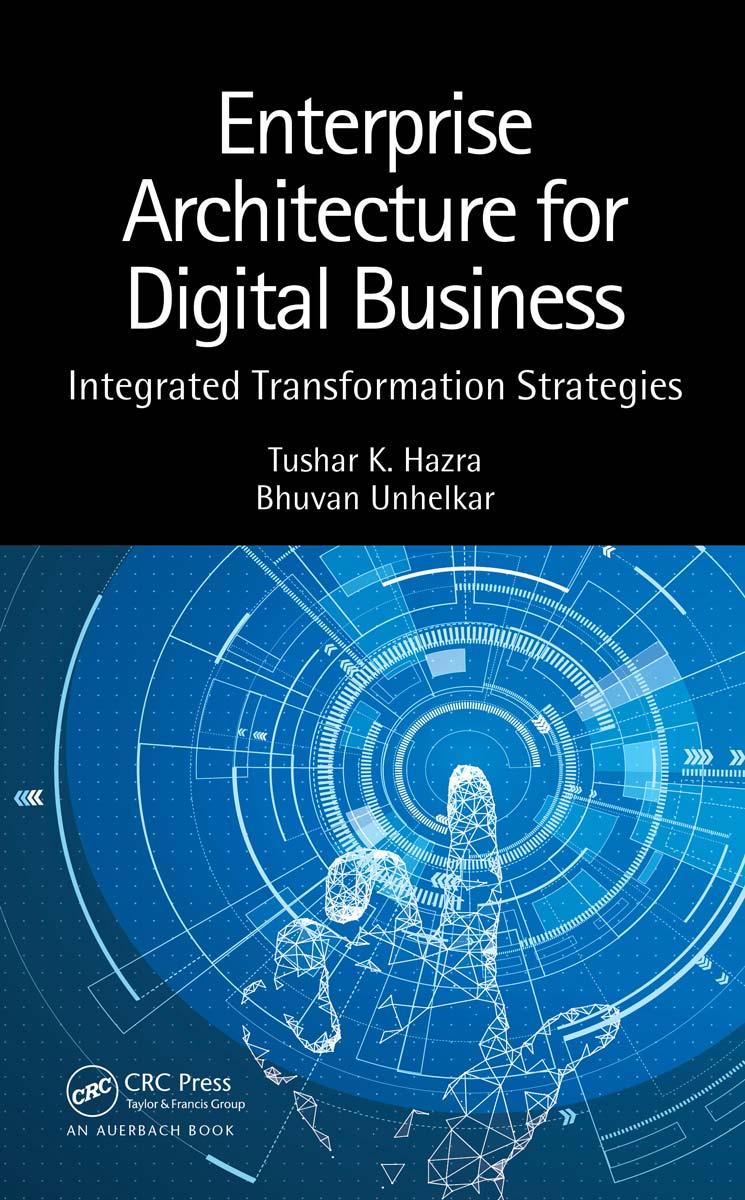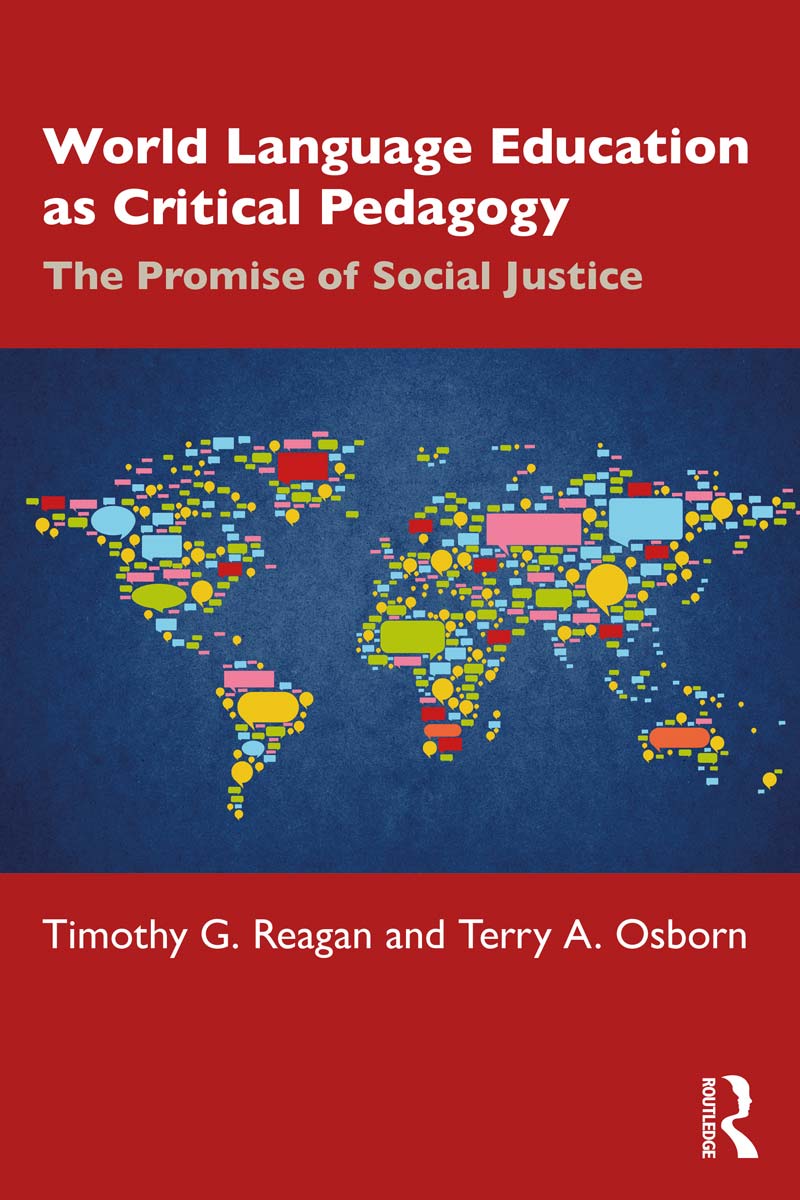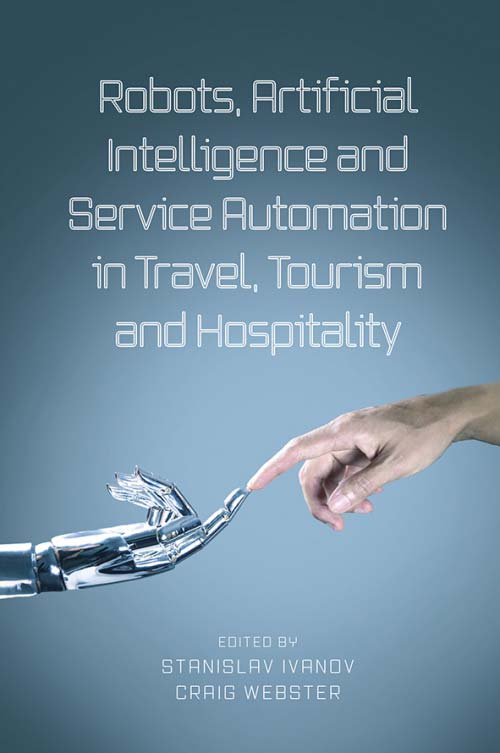Enterprise Architecture For Digital Business: Integrated Transformational Strategies" By Tushar K. Hazra And Bhuvan Unhelkar
Enterprise Architecture (EA) is essential to business, but EA can also be disruptive as it transcends and transforms business technology. In his new book, “Enterprise Architecture for Digital Business: Integrated Transformation Strategies,” (Routledge) USF Professor Bhuvan Unhelkar explores the impact of EA on business.
Highly disruptive technologies such as big data, machine learning and mobile and cloud computing require a balance between their business and technical aspects, says Unhelkar, a faculty member at the USF Sarasota-Manatee campus.
“EA is the glue that ties an organization’s solutions and systems to its goals,” he says. “EA helps align organizational competencies to what businesses want to achieve, thereby prioritizing competencies and eliminating wasted time and effort. But with the increasing complexity of software solutions, the need to integrate data, applications, services, visualization and security becomes immense. Our book focuses on these myriad aspects of an enterprise to help it deliver value.”
Unhelkar’s book, co-written by business and technology professor Tushar K. Hazra, an adjunct at Johns Hopkins University and chief technology innovation officer of Maryland-based EpitomiOne, focuses on preparing organizations – large and small – to leverage these emerging, disruptive and innovative technologies within the EA framework.
“I decided to write this book along with good friend and highly experienced Enterprise Architect Dr. Tushar Hazra because the importance of EA cannot be emphasized enough. We thought our combined EA experience is worth bringing to the fore to benefit practitioners, especially in large, multinational organizations.”


"World Language Education As Critical Pedagogy: The Promise Of Social Justice"By Timothy G. Reagan And Terry A. Osborn


The new edition of “World Language Education as Critical Pedagogy: The Promise of Social Justice” (Routledge) offers an important and much-needed perspective on world language education.
Building off his seminal 2002 work, “The Foreign Language Educator in Society,” USF Professor of Education Terry A. Osborn addresses critical issues facing world language educators today, including language myths, advocacy, the perceived and real benefits of language learning, linguistic human rights, constructivism, learning theories, language standards, monolingualism, bilingualism and multiculturalism.
“Language teaching is inherently tied to the social context in which it takes place,” Osborn, a faculty member at the USF Sarasota-Manatee campus, said. “Understanding how language teaching reflects, and can improve, our society is critical for us to understand as educators. As we have pursued these ideals over the last two decades, we have seen significant progress in the field of world language education.”
Co-written by Timothy G. Reagan, a professor of foreign language education at the University of Maine, their new book explores the conventional wisdom around language education and examines current social and political realities, assumptions and controversies within the field.
The book is organized into three parts – Knowing Language, Learning Language and Teaching Language – and each chapter offers questions for discussion to support students and educators in developing their own perspectives about teaching and learning languages.
“The reason we decided to write this book was that our 2002 book, the ‘Foreign Language Educator in Society: Toward a Critical Pedagogy,’ had become a classic and was widely viewed in the field of world language education as groundbreaking,” Osborn said.
“However, in the approximately 20 years since that book, we have learned a lot from our research. Other educators had begun to bring those insights into the classroom and it was time to revisit where we are as a profession.”
"Robots, Artificial Intelligence, And Service Automation In Restaurants" Bycihan Cobanoglu, Katerina Berezina And Olena Ciftci
Cihan Cobanoglu, interim dean of the USF School of Hospitality and Tourism Management, reunites with former USF faculty member Katerina Berezina and graduate student Olena Ciftci to contribute a chapter to the recently published “Robots, AI and Service Automation in Travel, Tourism and Hospitality,” (Emerald) edited by Stanislav Ivanov and Craig Webster.
The three wrote the chapter titled, “Robots, Artificial Intelligence, and Service Automation in Restaurants,” which examines automation trends within the service industry.
While much of the book tackles the range of topics around robots, artificial intelligence and service automation (RAISA) in travel, tourism and hospitality, the chapter by Cobanoglu and his cowriters presents the first systematic and in-depth review of RAISA technologies within the restaurant industry.
The authors present examples of restaurants implementing such technologies in their businesses – both for operations and customer use – and explore technologies used by businesses, in some cases proposing strategic alignment between business needs and technological capabilities.
“There also is an interesting interview with Mr. Juan Higueros, co-founder and COO of Bear Robotics, the inventor and producer of the robot runner Penny for restaurants,” Cobanoglu said. “The chapter and the book would be of interest to professors, graduate students and industry professionals.”
He said he decided to write the chapter because automation is growing in hospitality each year due to recent technological advancements.
“Automation and robots, with the help of artificial intelligence, has proven to cut costs, improve guest services and even help employees do their jobs better, faster and more efficiently,” Cobanoglu said.
“We wanted to investigate this growth in the industry and provide a strategic and practical guide to using automation and robots in restaurants.”





